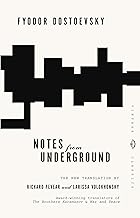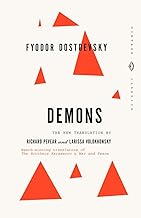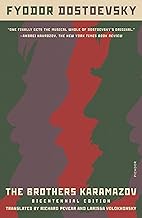
How to Read Fyodor Dostoevsky's Books on Existentialism
How to Read Fyodor Dostoevsky's Books on Existentialism
Estimated Reading Time: 10-12 minutes
Introduction
Fyodor Dostoevsky, a towering figure in Russian literature, is often hailed as one of the forefathers of existentialism. Born in 1821 in Moscow, Dostoevsky's life was marked by profound personal and societal turmoil, including his experiences with poverty, imprisonment, and the death of loved ones. These experiences deeply influenced his literary works, which grapple with the complexities of human existence, morality, and the search for meaning in a seemingly indifferent universe.
Dostoevsky's unique perspective on existentialism is rooted in his exploration of the human psyche, the nature of free will, and the struggle between faith and doubt. His works reflect the historical and cultural upheavals of 19th-century Russia, a time when intellectual currents were shifting towards questioning traditional values and exploring the depths of human consciousness. This guide will delve into three of Dostoevsky's seminal works—Notes from Underground, The Possessed, and The Brothers Karamazov—to illuminate his contributions to existential thought.
Why Fyodor Dostoevsky's Perspective Matters
Dostoevsky's approach to existentialism is distinctive due to his emphasis on the moral and spiritual dimensions of human existence. Unlike many existentialists who focus on absurdity and nihilism, Dostoevsky probes the potential for redemption and the significance of moral choice. His characters often face profound ethical dilemmas, reflecting the tension between individual freedom and societal constraints.
Moreover, Dostoevsky's exploration of faith, doubt, and the search for meaning resonates with readers across generations. His insights into the human condition, particularly the struggle for identity and purpose, offer a rich tapestry for understanding existentialism in both personal and philosophical contexts. The lasting impact of his ideas can be seen in the works of later existential thinkers, such as Jean-Paul Sartre and Albert Camus, who grappled with similar themes.
Overview of Recommended Books
Notes from Underground
Notes from Underground is often considered one of the first existential novels. Written in 1864, it presents the ramblings of an unnamed narrator, often referred to as the Underground Man, who embodies the conflict between rationality and emotion.
Main Themes and Arguments
The novel explores themes of alienation, free will, and the nature of consciousness. The Underground Man's bitter reflections reveal his deep-seated resentment towards society and his struggle with his own identity. He grapples with the idea of free will, questioning whether true freedom exists or if individuals are merely products of their environment.
Historical Context and Significance
Written during a time of great social change in Russia, the novel reflects the tensions between Western rationalism and Russian spirituality. Dostoevsky critiques the emerging utilitarian philosophy of the time, arguing that a purely rational approach to life neglects the complexities of human emotions and moral choices.
Key Insights and Takeaways
- The Paradox of Free Will: The Underground Man's insistence on his free will, even when it leads to self-destructive behavior, illustrates the complexity of human agency.
- Alienation as a Condition of Modernity: The protagonist's isolation reflects the existential crisis faced by individuals in an increasingly impersonal society.
- The Search for Authenticity: The struggle for genuine self-expression amidst societal pressures is a central theme that resonates with contemporary readers.
Why Read This Book: Notes from Underground is essential for understanding the foundations of existential thought. It appeals to anyone interested in the complexities of human behavior and the philosophical questions surrounding freedom and identity.
The Possessed
Published in 1872, The Possessed (also known as Demons or The Devils) is a political and philosophical novel that examines the rise of radical ideologies in Russia.
Main Themes and Arguments
The novel delves into themes of nihilism, morality, and the consequences of unchecked ideology. Through a cast of characters representing various philosophical stances, Dostoevsky critiques the dangers of radicalism and the moral vacuity that can arise from a rejection of traditional values.
Historical Context and Significance
Set against the backdrop of the political unrest in Russia, The Possessed serves as a cautionary tale about the potential for destructive ideologies to take root in society. Dostoevsky's insights into the motivations behind revolutionary fervor remain relevant today.
Key Insights and Takeaways
- The Dangers of Nihilism: The characters' descent into moral chaos illustrates the perils of abandoning ethical frameworks in favor of radical ideologies.
- The Role of the Individual: The novel emphasizes the importance of personal responsibility and moral choice in the face of societal pressures.
- Faith vs. Doubt: The struggle between belief and skepticism is central to the narrative, prompting readers to reflect on their own convictions.
Why Read This Book: The Possessed is crucial for understanding the intersection of philosophy and politics. It appeals to those interested in the moral implications of ideology and the complexities of human motivation.
The Brothers Karamazov
Dostoevsky's final novel, The Brothers Karamazov, published in 1880, is a profound exploration of faith, morality, and the nature of existence.
Main Themes and Arguments
The novel addresses themes of free will, the existence of God, and the problem of evil. Through the lives of the Karamazov brothers—each representing different philosophical perspectives—Dostoevsky examines the complexities of human relationships and the moral dilemmas that arise from them.
Historical Context and Significance
Written during a period of intense philosophical and theological debate in Russia, the novel reflects Dostoevsky's own struggles with faith and doubt. It engages with the existential questions that were becoming increasingly prominent in European thought.
Key Insights and Takeaways
- The Nature of Faith: The characters' diverse beliefs illustrate the multifaceted nature of faith and the personal journey each individual must undertake.
- Moral Responsibility: The novel emphasizes the importance of individual choice and accountability in shaping one's destiny.
- The Problem of Evil: Dostoevsky's exploration of suffering and injustice invites readers to confront the complexities of human existence.
Why Read This Book: The Brothers Karamazov is a monumental work that encapsulates Dostoevsky's philosophical inquiries. It is essential reading for anyone seeking to understand the moral and existential dilemmas that define the human experience.
How These Books Complement Each Other
Together, these works create a rich dialogue about existentialism. Notes from Underground introduces the concept of alienation and the paradox of free will, while The Possessed critiques the dangers of nihilism and radical ideologies. The Brothers Karamazov culminates this exploration by addressing the profound questions of faith, morality, and the human condition. Reading them in succession allows for a deeper understanding of the evolution of Dostoevsky's thought and the multifaceted nature of existentialism.
Who Would Benefit from Reading These Books
These works are invaluable for a wide range of readers:
- Students and Academics: Those studying literature, philosophy, or psychology will find rich material for analysis and discussion.
- General Readers Interested in Existentialism: Anyone curious about the human experience and the search for meaning will resonate with Dostoevsky's insights.
- Professionals Seeking Practical Wisdom: Individuals in fields such as psychology, sociology, or ethics can draw on Dostoevsky's exploration of moral dilemmas and human behavior.
- Anyone Looking for Personal Growth: Readers seeking self-improvement and a deeper understanding of their own beliefs and values will find inspiration in Dostoevsky's characters and themes.
Recommended Reading Order
- Start with: Notes from Underground - This foundational text introduces key existential themes and sets the stage for understanding Dostoevsky's perspective.
- Continue with: The Possessed - Building on the themes of ideology and morality, this novel expands the discussion to societal implications.
- Advanced reading: The Brothers Karamazov - As Dostoevsky's magnum opus, this work offers a comprehensive exploration of faith, ethics, and the human condition.
Tips for Getting the Most Out of Each Book:
- Take notes on key themes and characters as you read.
- Reflect on how the philosophical questions raised resonate with your own experiences.
- Engage in discussions with others to deepen your understanding and perspective.
Conclusion
Fyodor Dostoevsky's contributions to existentialism are profound and enduring. His exploration of the human psyche, moral choice, and the quest for meaning continues to resonate with readers today. By delving into Notes from Underground, The Possessed, and The Brothers Karamazov, readers can gain valuable insights into the complexities of existence and the human condition. I encourage you to explore these works and reflect on the timeless relevance of Dostoevsky's ideas in your own life and the world around you.
Tags: #Fyodor Dostoevsky #Existentialism #Philosophy #ReadingGuide #ClassicLiterature #Wisdom
Featured Books

Notes from Underground
by Fyodor Dostoevsky
Published: 1864
Award-winning translators Richard Pevear and Larissa Volokhonsky give us a brilliantly faithful rendition of this classic novel, in all its tragedy and tormented comedy. In this second edition, they have updated their translation in honor of the 200th anniversary of Dostoevsky’s birth. One of the most remarkable characters in literature, the unnamed narrator of Dostoevsky's most revolutionary novel is a former official who has defiantly withdrawn into an underground existence. In full retreat from society, he scrawls a passionate, obsessive, self-contradictory narrative that serves as a devastating attack on social utopianism and an assertion of man’s essentially irrational nature. Read more

The Possessed
by Fyodor Dostoevsky
Published: 1872
Inspired by the true story of a political murder that horried Russians in 1869, Fyodor Dostoevsky conceived of Demons as a "novel-pamphlet" in which he would say everything about the plague of materialist ideology that he saw infecting his native land. What emerged was a prophetic and ferociously funny masterpiece of ideology and murder in pre-revolutionary Russia. Read more

The Brothers Karamazov
by Fyodor Dostoevsky
Published: 1880
Winner of the Pen/Book-of-the-Month Club Translation PrizeThe award-winning translation of Fyodor Dostoevsky's classic novel of psychological realism.The Brothers Karamazov is a murder mystery, a courtroom drama, and an exploration of erotic rivalry in a series of triangular love affairs involving the “wicked and sentimental” Fyodor Pavlovich Karamazov and his three sons―the impulsive and sensual Dmitri; the coldly rational Ivan; and the healthy, red-cheeked young novice Alyosha. Through the gripping events of their story, Dostoevsky portrays the whole of Russian life, its social and spiritual striving, in what was both the golden age and a tragic turning point in Russian culture. This award-winning translation by Richard Pevear and Larissa Volokhonsky remains true to the verbal inventiveness of Dostoevsky’s prose, preserving the multiple voices, the humor, and the surprising modernity of the original. It is an achievement worthy of Dostoevsky’s last and greatest novel. Read more